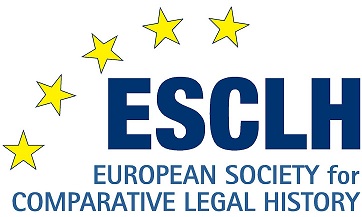Ius Commune Workshop on Comparative Legal History
Ius Commune in the Making: Meaning in Law
27 November 2025
The 29th Ius
Commune Conference will take place in Amsterdam (27-28 November 2025), and a
Workshop will be devoted to “Meaning in Law.”
The workshops
on “Comparative Legal History – Ius Commune in the Making” aim to reveal and
understand the nature and effects of various legal formants in the development
of law. Indeed, forces of legal formants are too often lost or hidden beneath a
superficies of commonalities. History is a living laboratory. In the past, we
explored the role of legal actors (2014), legal sources (2016), force of local
laws (2017), methods and dynamics of law (2018), networks (2019), paradigmatic
shifts (2020), great debates in the history of law (2021), the concept of
innovation in law (2023), and manifestations of nature in law (2024).
This upcoming
workshop is dedicated to the different conceptions of “meaning” in law. What is
understood by meaning? On a working level, it may be taken up as “interpretation”
of rules or juridical acts, or as “qualification” of facts. There it provides
for a wide realm of comparative historical research. It does cover in essence everything,
concerning individual and societal intention and action - and whatever over
time is part of the legal domain. Legal methodology is just around the corner,
and so is political philosophy - to any individual person, or to institutions
such as legislators, judges, and professors. To get to the meaning of a
legislative, judicial, or jurisprudential norm: why are some schools of
thought, such as textualism, originalism, contextualism, or sociological
jurisprudence, preferred over others?
Maxims or principles
enlighten the cobbled roads towards meaning in law. In claris cessat interpretatio - if words are clear, interpretation
stops; even so: though the Praetor’s edict could be perfectly clear, still its
interpretation should not be neglected, Ulpian makes clear (D 25.4.1.11).
Matters not dealt with in law, may be derived by analogy - Julian (D 1.3.12) -
if such makes sense in the light of what has been prescribed. At the same time,
concepts may have a range of consecutive (legal history) and parallel
(comparative law) meanings in the legal domain - even in the same society or
jurisdiction. Contracts have been similarly understood based on texts or
contexts; understanding contracts gave birth to similar maxims, which
methodological toolboxes show, albeit with large differences, both of the civil
law and the common law traditions. The meaning of a rule or a fact is, however,
not only determined by the method of logical and/or empirical reasoning - but
also by (tradition of) explicit consensus, customs, and religion. Is there a
hierarchy? In any way - all modes of finding and justification of meaning are
interrelated, react and overlap, and ultimately may contribute. Traditional
customs, specifically proven, meeting rational standards and natural, canonical
aequitas might not only be accepted,
but might even trump mandatory statutes; natural aequitas similarly might give birth to an actio utilis where traditional and consensual law did not. What is
meaning in law? Certainty too often seems to be in contemporary law the prime
virtue. It is not. There is hierarchy here. In the quest for a good life, veritas and fides have more important seats at the table - always headed by the
bright sun of justice.
Senior researchers and PhD candidates are invited to submit an abstract
of a paper related to the above-mentioned theme. Abstracts (max. 400 words)
should be sent to Agustín Parise ([email protected]) no later
than 1 August 2025. Shortly after that, the authors will be informed
whether their papers are selected for a presentation during the Workshop. All
contributions should be in English. Co-authored papers will be also considered.
The organizing committee will give preference to early-career researchers when
facing submissions of similar quality.
Researchers from within and outside the Ius Commune Research School will
be eligible to present abstracts. Please
also forward this call to colleagues who might be interested.
Should you have any questions please do not hesitate to contact a member of the organizing committee,
Harry Dondorp ([email protected])
Wouter Druwé ([email protected])
Michael Milo ([email protected])
Pim Oosterhuis ([email protected])
Agustín Parise ([email protected])


No comments:
Post a Comment